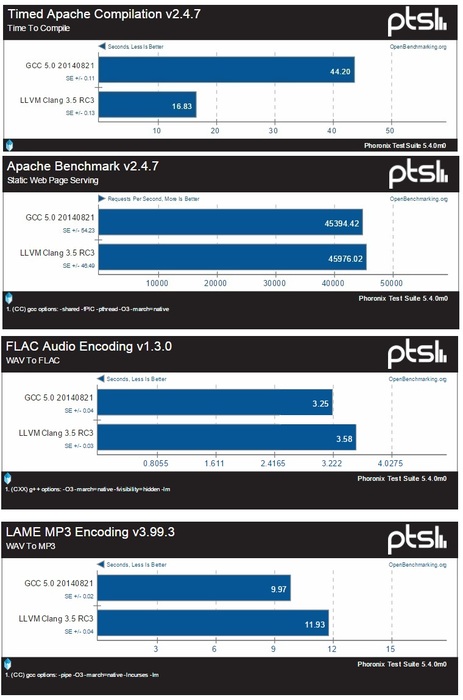Researchers are developing compiler technologies that optimize and regenerate code in multiple languages and for many different platforms in only one or a handful of steps. While much of their work focuses on Java and JavaScript, their innovations will impact developers working in nearly all programming languages.
Who says you can’t teach an old dog new tricks? One of the staples of any developer’s code-optimization toolkit is a compiler, which checks your program’s syntax, semantics, and other aspects for errors and otherwise optimizes its performance.
Infostructure Associates’ Wayne Kernochan explains in an October 2014 TechTarget article that compilers are particularly adept at improving the performance of big data and business-critical online transaction processing (OLTP) applications. As recent developments in compiler technology point out, the importance of the programs goes far beyond these specialty apps.
Google is developing two new Java compilers named Jack (Java Android Compiler Kit) and Jill (Jack Intermediate Library Linker) that are part of Android SDK 21.1. I Programmer’s Harry Fairhead writes in a December 12, 2014, article that Jack compiles Java code directly to a .dex Dalvik Executable rather than using the standard javac compiler to convert the source code to Java bytecode and then to Dalvik bytecode by feeding it through the dex compiler.
In addition to skipping the conversion to Java bytecode, Jack also optimizes and applies Proguard’s obfuscation in a single step. The .dex code Jack generates can be fed to either the Dalvik engine or the new ART Android RunTime Engine, which uses Ahead-of-Time compilation to improve speed.
Jill converts .jar library files into the .jack library format to allow it to be merged with the rest of the object code.

Google’s new Jack and Jill Java compilers promise to speed up compilation by generating Dalvik bytecode without first having to convert it from Java bytecode. Source: I Programmer
In addition to streamlining compilation, Jack and Jill reduce Google’s reliance on Java APIs, which are the subject of the company’s ongoing lawsuit with Oracle. At present, the compilers don’t support Java 8, but in terms of retaining compatibility with Java, it appears Android has become the tail wagging the dog.
Competition among open-source compiler infrastructures heats up
The latest versions of the LLVM and Gnu Compiler Collection (GCC) are in a race to see which can out-perform the other. Both open-source compiler infrastructures generate object code from any kind of source code; they support C/C++, Objective-C, Fortran, and other languages. InfoWorld’s Serdar Yegulalp reports in a September 8, 2014, article that testing conducted by Phoronix of LLVM 3.5 and a pre-release version of GCC 5 found that LLVM recorded faster C/C++ compile times. However, LLVM trailed GCC when processing some encryption algorithms and other tests.

Version 3.5 of the LLVM compiler infrastructure outperformed GCC 5 in some of Phoronix’s speed tests but trailed in others, including audio encoding. Source: Phoronix
The ability to share code between JavaScript and Windows applications is a key feature of the new DuoCode compiler, which supports cross-compiling of C# code into JavaScript. InfoWorld’s Paul Krill describes the new compiler in a January 22, 2015, article. DuoCode uses Microsoft’s Roslyn compiler for code parsing, syntactic tree (AST) generation, and contextual analysis. DuoCode then handles the code translation and JavaScript generation, including source maps.
Another innovative approach to JavaScript compiling is the experimental Higgs compiler created by University of Montreal researcher Maxime Chevalier-Boisvert. InfoWorld’s Yegulalp describes the project in a September 19, 2014, article. Higgs differs from other just-in-time (JIT) JavaScript compilers such as Google’s V8, Mozilla’s SpiderMonkey, and Apple’s LLVM-backed FTLJIT project in that it has a single level rather than being multitiered, and it accumulates type information as machine-level code rather than using type analysis.
When it comes to optimizing your heterogeneous MySQL, MongoDB, Redis, and ElasticSearch databases, the new Morpheus Virtual Appliance makes it as easy as pointing and clicking in a single dashboard. Morpheus is the first and only database-as-a-service (DBaaS) that supports SQL, NoSQL, and in-memory databases across public, private, and hybrid clouds.
With Morpheus, you can invoke a new database instance with a single click, and each instance includes a free full replica set for failover and fault tolerance. Your MySQL and Redis databases are backed up and you can administer your databases using your choice of tools. Visit the Morpheus site to create a free account.